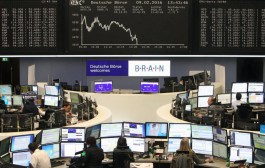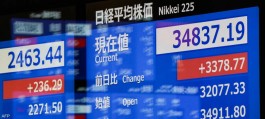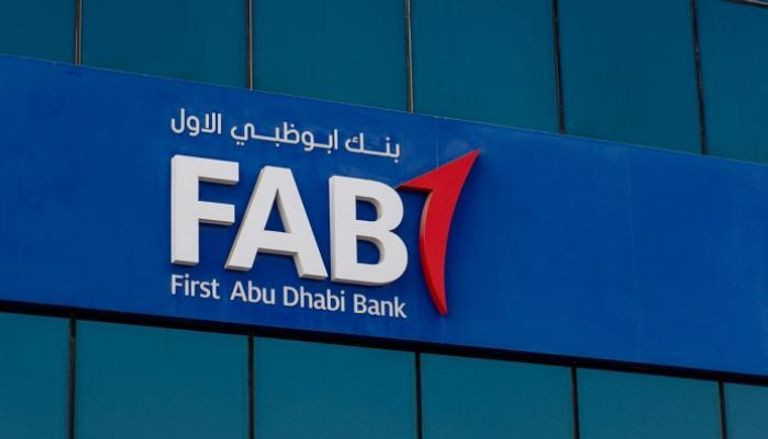Over the past year, the oil-rich emirate of Abu Dhabi has pursued a series of ambitious acquisitions of international banks in an attempt to increase its weight in the global financial sector, but none of them have been successful so far.
ADQ Holdings held initial talks to acquire the specialized investment bank Lazard earlier this year, according to people familiar with the matter. The people, who asked not to be named because the discussions are confidential, said the negotiations quickly collapsed over disagreements over the future of the 175-year-old Wall Street bank's independence.
Around the same time, it was reported that First Abu Dhabi Bank (FAB) was considering a $35 billion offer to buy the British Standard Chartered Bank. And he had previously tried to buy the largest investment bank in Egypt during 2022, however, none of the two deals succeeded.
In March, people familiar with the matter said that the Royal Group, headed by UAE National Security Adviser Sheikh Tahnoun bin Zayed Al Nahyan, considered the possibility of acquiring the UK arm of Silicon Valley Bank after its collapse, and then eventually was bought by HSBC Holdings for a fee One British pound ($1.3).
Opening new avenues for the banking sector in the Emirate
Abu Dhabi has succeeded in concluding some deals in the financial sector, but there is no indication that it will stop looking for major deals. The emirate manages approximately $1.5 trillion in sovereign wealth, and is also home to sovereign funds such as the Abu Dhabi Investment Authority and Mubadala Investment Company. This expansion, driven by the ambition of the ruling Al Nahyan family - especially Sheikh Tahnoun - aims to achieve greater global weight for the emirate, in addition to finding new ways for the growth of its banking sector.
First Abu Dhabi announces the acquisition of Bank Audi Egypt
Karim Sweed, managing partner of the Gulf-based private investment company Growthgate Capital, explained: The commercial banking sector in Abu Dhabi is still largely local despite the huge size of the balance sheets of its huge banks, and the sector is heading towards expanding globally in order to pursue the approach of diversifying the economy and reinvesting Oil revenues, seizing new opportunities.
The UAE government media office referred questions to the media office in Abu Dhabi, which did not respond to a request for comment.
Limited opportunities in the local market
The population of the United Arab Emirates is just over 9 million, which is a relatively small number. A large number of regional and foreign banks already operate there. In light of the limited expansion opportunities in the local market, some financial institutions in the country are looking to expand abroad.
First Abu Dhabi Bank has long competed with Qatar National Bank for the position of the largest lender in the Middle East. Both banks have shown their intentions to expand their international presence, but so far it has been limited to regional countries such as Turkey and Egypt.
The many takeover attempts by Abu Dhabi offer a look at the great ambition of the wealthiest Middle Eastern institutions to play a larger role in the global finance arena, as well as overcoming the hardships they face along the way.
First Abu Dhabi Bank bought the Egyptian unit of Bank Audi in 2021, and a year later pulled its $1.2 billion bid for Egyptian investment bank EFG-Hermes after facing lengthy regulatory delays, Bloomberg reported.
In the case of Standard Chartered, closing the deal was complex and elusive given the hurdles and differences in size of the two banks, and earlier this year, people familiar with the matter said that regulatory approvals and compliance requirements were among the hurdles to a successful takeover.
Head of Standard Chartered to Al-Sharq: Egypt is carrying out painful reforms, and we will support them
Successful acquisitions
However, not all discussions were unsuccessful. In May, Mubadala bought a majority stake in Fortress Investment Group, in cooperation with the management team of the American asset management company, in a deal valued by Fortress at more than two billion dollars.
Bloomberg: Mubadala Investment acquires most of SoftBank's share in the American Fortress
Abu Dhabi's growing ambition comes at a time when a number of banks around the world have collapsed. In light of the abundance of liquidity after the recent rise in oil prices, the region remains home to a group of financial institutions that are able to raise huge funds to provide bailout packages or conclude large deals. For example, the richest Gulf countries in 2008 rushed to buy stakes in Western banks such as Citigroup. .
Earlier this year, ADQ Holding and International Holding Company - both headed by Sheikh Tahnoun - established a new investment group with the backing of US private equity firm General Atlantic. The new entity seeks to become the largest asset management company in the region.
The search continues
If the deal for Lazard, which manages about $235 billion in assets, had not faltered, it would have boosted ADQ Holdings' potential strongly, said a person familiar with the sovereign fund's strategy.
Also, the success of the Standard Chartered deal would have made First Abu Dhabi Bank an emerging market banking giant with assets of more than $1 trillion - about a third of the size of HSBC. At the time, First Abu Dhabi Bank confirmed its consideration of buying the British bank, but said it was no longer considering making an offer.
Nevertheless, Shabir Malik, banking sector analyst at EFG Hermes, expects that First Abu Dhabi Bank will continue to search for deals, and he said: In order for the bank to continue expanding at the same pace as previous years, it needs to search for expansion outside the Emirates … the type of merger and acquisition deals that may The bank is conducting the course of the stock and its financial performance in the short and near terms.





































